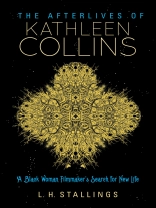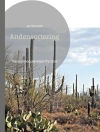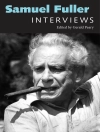An absorbing portrait of a groundbreaking Black woman filmmaker.
Kathleen Collins (1942–88) was a visionary and influential Black filmmaker. Beginning with her short film The Cruz Brothers and Miss Malloy and her feature film Losing Ground, Collins explored new dimensions of what narrative film could and should do. However, her achievements in filmmaking were part of a greater life project. In this critically imaginative study of Collins, L.H. Stallings narrates how Collins, as a Black woman writer and filmmaker, sought to change the definition of life and living.
The Afterlives of Kathleen Collins: A Black Woman Filmmaker’s Search for New Life explores the global significance and futurist implications of filmmaker and writer Kathleen Collins. In addition to her two films, Stallings examines the broad and expansive and varying forms of writing produced by Collins during her short life time. The Afterlives of Kathleen Collins showcases how Collins used filmmaking, writing, and teaching to assert herself as a poly-creative dedicated to asking and answering difficult philosophical questions about human being and living. Interrogating the ideological foundation of life-writing and cinematic life-writing as they intersect with race and gender, Stallings intervenes on the delimited concepts of life and Black being that impeded wider access, distribution, and production of Collins’s personal, cinematic, literary, and theatrical works.
The Afterlives of Kathleen Collins definitively emphasizes the evolution of film and film studies that Collins makes possible for current and future generations of filmmakers.
Innehållsförteckning
Acknowledgments
Introduction
Anterior Life
1. She Liked Writing
Love Life
2. Love, a Crisis of Possession
Life of the Mind
3. Fifth Dimension Cinema
Mocambo Life
4. Cinematic Marronage
Karkinos Life
5. Black Feminist Poethics of Cancer
Conclusion: Dreams No Longer Deferred
Notes
References
Index
Om författaren
L. H. Stallings is Professor in the Department of African American Studies at Georgetown University. She is author of A Dirty South Manifesto: Sexual Resistance and Imagination in the New South; Funk the Erotic: Transaesthetics and Black Sexual Cultures; and Mutha’ Is Half a Word: Intersections of Folklore, Vernacular, Myth, and Queerness in Black Female Culture.












